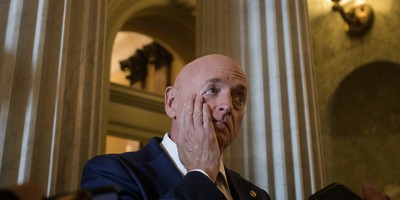Burger King’s effort to acquire Tim Horton’s, a Canadian purveyor of coffee and doughnuts, is a good business decision, but its choice to locate corporate headquarters north of the border would be the direct result of President Obama’s anti-business tax policies.
Burger King is a well managed global enterprise with stores in nearly 100 countries, and half its profits earned abroad. Like rival McDonald’s, its sales are declining, as millennials turn away from hamburgers, and it is seeking other avenues to expand.
McDonald’s is getting into coffee—a high margin business—in a big way, and Tim Horton’s java knowledge offers Burger King the opportunity to do the same.
Also, Burger King could apply its knowledge of foreign franchising and restaurant regulations to expand Tim Horton’s limited global footprint, as rival Dunkin’ Brands is doing in Asia.
Simply, the U.S. federal corporate tax rate is 35 percent and applies to both Burger King’s domestic and overseas profits, whereas Canada’s rate is 15 percent and only applies to Tim Horton’s domestic sales.
In the second quarter of this year, Burger King’s federal and state income taxes were 24 percent of its operating costs and 34 percent of its profits. Locating in Canada would cut those figures by up to 25 percent.
No responsible CEO or corporate board could reasonably ignore those figures, and that’s why about 60 U.S. companies have completed or plan so called “tax inversions”—acquisitions or mergers with foreign companies that permit them to locate their tax address in a friendlier jurisdiction.
What American businesses actually pay in federal and state income taxes varies a lot, thanks to many exemptions, deductions and provisions to delay taxes on foreign earnings; however, the average combined U.S. and foreign tax burden on profits is about 30 percent, whereas the average for foreign rivals is about 23 percent.
Recommended
Ohio Democratic Senator Sherrod Brown is calling for a boycott of Burger King, and Treasury Secretary Lew is busy crafting legislation for Congress to make tax inversions more difficult if not impossible.
If Congress doesn’t act, Lew is threatening to bypass Congress and make tax inversions illegal by “reinterpreting” tax laws—likely as suits the convenience of Obama’s political agenda.
And that’s the more fundamental point. The U.S. tax system has become both burdensome and quite arbitrary—a political tool that presidents of both parties may use to reward friends and punish enemies.
A 2013 study undertaken by a European think tank ranked the United States 94th out of 100, right after Zimbabwe, for its impact on business competitiveness. No wonder the U.S. economy is not creating enough jobs.
In a recent example, the Treasury Department determined that telecommunications company copper and fiber optic transmission lines—think the wires on poles outside your home—are real estate, and may be placed in a special real estate investment trust that receives privileged tax treatment.
It is no accident that telecom companies, which are highly regulated entities, are big donors to the Democratic Party. In fact, the home of Comcast’s CEO is one of the president’s favorite fund raising venues.
Democrats and Republicans alike say they want corporate tax reform—eliminate loopholes and deductions and lower rates—but Obama has made clear he wants more revenue overall out of the exercise.
As Lew’s recent actions demonstrate, that will come down to burdening firms led by Republicans paying even higher taxes and dolling out advantages to industries whose management support the Democratic Party.
House Republicans will never go for that.
Nothing will change until we get a president with some understanding of business and a treasury secretary with some sense of shame.
Peter Morici is an economist and business professor at the University of Maryland, national columnist and five-time winner of the MarketWatch best forecaster award. He tweets @pmorici1

























Join the conversation as a VIP Member